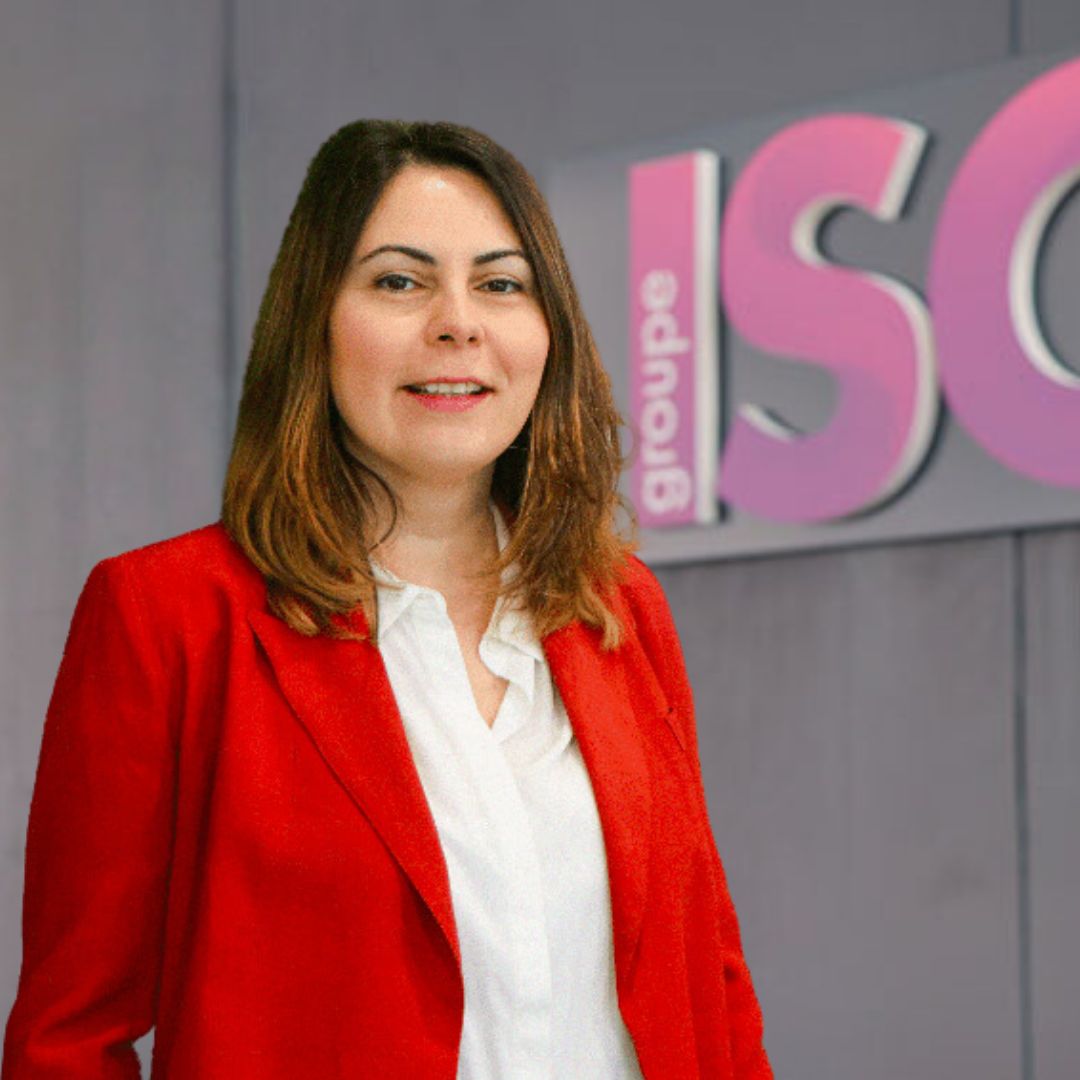

Professors and Research
“Learning how to learn” is the pedagogy that ISC Paris strives to apply every day. We use a wide variety of learning approaches and real-world experiences. These approaches represent an alternative to the traditional business school classroom approach, and they allow us to vary the methods that we use.
Our mission:
To enable our learners to reveal their talents which serve society and enterprises for a sustainable future in an international context.

Action Learning is asking our students to work, on specific business questions, under conditions that emulate the professional environment.
The particular features of action learning are a business-related question that has a complex setting, a coach or facilitator that guides the discovery of solution, the need for an individual reflection that incorporates multiple competences, experiences and the acumen of management knowledge gathered by the student, all in an iterative discovery and application path.
Action Learning is asking you to learn by doing: to move, to put yourself into action, to create sustainable solutions.
When we set up action learning (with classes, activities or by having you work directly with businesses) we expect to see your competences emerge, it is the best way to practice your managerial skills blossom: by setting you in movement, and asking you to apply, your unique set of competences
Action learning will let you make early mistakes, learn by iterating different solutions, improve your reflection by interacting with others, test tools to become more agile, and deepen your mastery and proficiency of management notions by letting you experience what is like to be a business leader in a local and international context.
Action learning “require[s] the educator to privilege the learner’s participation over his or her own declarative knowledge of the subject.” (MacVaugh and Norton 2012, p. 74). “The core elements of active learning are student activity and engagement in the learning process.” (Prince 2004, p. 223).
Has Action learning existed at ISC Paris since the creation of the school?
Yes, Action Learning is one of the pillars of ISC Paris and one of the reasons for the creation of the school: to provide management education to future managers and provide them with opportunities to learn from real business issues.
How did Action learning start at school?
The two main foundations of Action Learning were the idea to create internships as well as the very original Student Companies “Entreprises Étudiantes”. In fact, thanks to our founder, we are the pioneers of the internship model, the first opportunity to business immersion of its type.
In the words of our founder ISC Paris had as objective for its creation:
“The selection and training of a young elite for the business of tomorrow, a business ‘living being’, a communicating business, open to the outside world, capable of adapting everywhere and in all situations, that is to say to observe, to analyze the needs, to make plans and choices, to train others”
Did ISC Paris invent Action Learning?
No, this method was first defined by Reginald Revans, who suggested that in this type of learning method, there was no room for prefabricated answers. Instead, students could become aware of their knowledge gaps and explore answers to original questions that trigger their curiosity, guide them through the discovery of actionable frameworks, and enable them to work with others to find solutions to complex problems. He had a simple formula for this:
L = P + Q
Where “L” is learning, “P” is programmed (or provided) knowledge and “Q” is a power question that leads students to search for answers based on new and past experiences.
Are we really the only ones doing Action learning?
No, today ISC Paris is not the only school that uses now the Action learning model, and we are proud of this. The diffusion of this teaching philosophy around the world, and the standardization, of for example, the business internships, are a reflection of the importance and efficacy of this learning method.
As pioneers however, we find great pride in continuing to invest in developing more and more action-learning based learning tools.
This method seems very interesting to me, but how is it really different from the usual teaching?
In a normal classroom setting the professor plays a role of expertise: he exposes issues, presents concepts, teaches different methods to find solutions and answers to questions.
In an Action-Learning environment, the process of learning is a cycle, where students make trial-and-error attempts to find answers, are guided by a professor (acting more as a coach and observer than as an expert with the answer in hand) and there is never a perfect answer (as it happens in the world of business)/
Concretely, what form does it take?
It takes the form of business cases, simulations, games, competitions, challenges proposed by companies, hackathons, associations, business plans, startup creation, working in our incubator, doing a stage of apprenticeship, doing a reversed class. In each one of these cases you will have a setting that allows the iteration of four learning processes: Learning, Planning, Acting and Reflecting!
For a student, what are the key benefits of action learning?
– Learning how to reflect
– Using critical thinking
– Learning how to receive feedback
– Understanding how to become responsible or accountable for decision making
– Learning to analyze and interpret imperfect information
– Setting objectives and goals
– Learning to observe, listen and gather information
– Learning to ask questions
– Feeling at ease with creativity
– Learning how to contribute to a group
How is Action learning useful for the professional career of our students?
It makes the transition into the business world almost seamless for the student. It builds its confidence as a future leader, and it makes our students face early-on the challenges of decision-making in the international environment.
What are the key elements that I will find in an Action-Learning setting?
– A business question or inquiry
– A tutor, coach, teacher or facilitator that guides the discovery of solution
– Complexity in the number of likely responses to the question
– Clear roles, expectations and responsibilities that are shared with the individuals or groups participating in the activity
– An individual learning effect that is possible thanks to the actions and experiences gathered during the exercise
Is Action Learning practiced by all teachers, in all courses?
Action Learning is practiced in about half of the activities the students encounter (either inside or outside the classroom).
If you wonder why it is not a 100% of everything we teach, the answer is simple: a variety of pedagogical tools, orientations are tactics are necessary in order to nourish the learning experience (other pedagogical tools develop other competences and qualities in our students, such as improved comprehension skills or better understanding of scientific notions).
Are our teachers trained in action learning upstream? Do they have any training when they arrive at the ISC Paris?
Our teachers are trained internally by a number of training sessions organized by Action Learning Lab. They also learn by doing (yes this is a virtuous cycle) and by means of exchanging with their own colleagues and working together to create pedagogical innovations.
Some of our professors have some expertise with action learning but we try to really boost their knowledge and competences as facilitators and to give them the liberty to experiment in class with their students, being guided by other professors, experts and pedagogical engineers.
Do we have a referent or an Action learning specialist at ISC Paris?
We have many! If you want to meet one of our leading faculty in the subject let us know.
I want to experience Action Learning and find out more about it!
Sources:
https://www.harvardbusiness.org/action-learning-with-impact/
Revans, R. 1980. Action learning: New techniques for management. London: Blond & Briggs, Ltd.
Revans, R. W. 1982. The origin and growth of action learning.Brickley, Royaume-Uni: Chartwell-Bratt.
Revans, R. W. 1998. ABC of action learning. London: Lemos and Crane.